TI-RW Disseminates Key Findings of Analysis of Auditor General’s Report of Decentralized Entities for 2020/2021 Financial Year
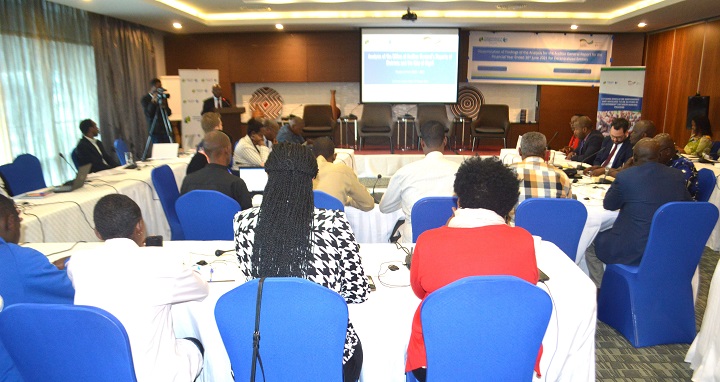
On 31st March 2023, Transparency International Rwanda (TI-RW) disseminated key findings of the Analysis of the Auditor General’s Report of the Decentralized Entities for the 2020/2021 Financial Year. The event brought on board key actors & stakeholders involved in Public Finance Management.
The objectives of this analysis routinely conducted by TI-RW is to increase the understandability and transparency of Auditor General’s reports towards the general public and local government officials, providing evidence-based information for the steering of local PFM activities as well as preparing policy discussions with relevant stakeholders.
According to the findings, among 1,589 Auditor General’s recommendations, Districts and City of Kigali were able to fully implement 55%. As per TI-RW’s analysis, 75.20% were very easy to implement, 10.13% were easy, 5.48% moderate, 8.37% difficult, while it was very difficult to implement 0.82% of these recommendations.
The analysis revealed that all PFM related weaknesses have INCREASED. The findings reveal that there is much inconsistency in reducing expenditure related weaknesses with an increase of 39.6 times.
The findings also underpin that unsupported related weaknesses have massively INCREASED, with an increase of 59.6 times compared to the previous FY. Again, unsupported expenditure accounts 92.5% of the total amount of expenditure-related weaknesses and 1.37% of all PFM weaknesses.
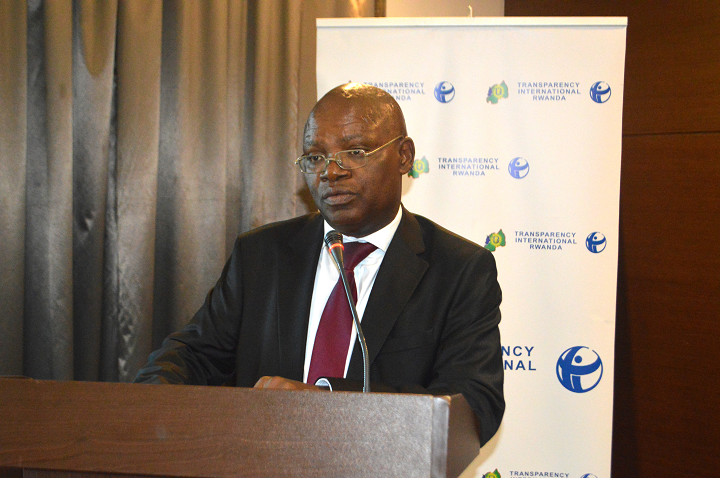
According to TI-RW Executive Director Apollinaire Mupiganyi, the collaboration between all line institutions and stakeholders is highly needed to realize the needed turnaround in ensuring effective Public Financial Management (PFM). He also emphasized that TI-RW is committed to contribute to the intended changes in PFM.
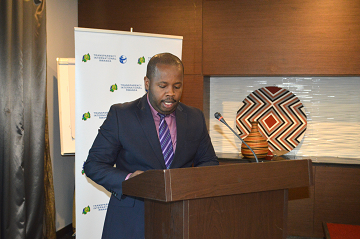
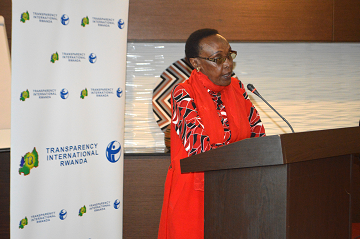
The Permanent Secretary at the Ministry of Local Government (MINALOC), Samuel Dusengiyumva underscored that, in the light of “Fiscal and Financial Decentralization Policy, Effective Public Financial Management (PFM) is the government priority” and that it will continue to reform and strengthen PFM system.
In her remarks, TI-RW Chairperson Ingabire Marie Immaculée said the meeting was successful hinging on the fact that all stakeholders were able to understand their responsibility and how to harmonize their collaboration.
“This meeting was crucial to all and sundry here present because we have been able to have a common understanding on the challenges affecting effective Public Financial Management & how these issues can be sorted out.” Ingabire added.
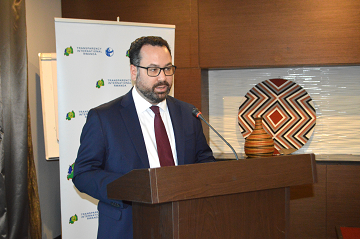
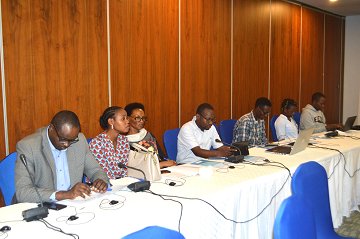
In his remarks, Philippe Taflinski, the Head of Cooperation at the Embassy of Federal Republic of Germany in Rwanda reiterated that, through longstanding partnership with government of Rwanda, Germany is committed to contributing to strengthening accountability and effective PFM.
Other key highlights from the analysis
Irregularities in Expropriation, Districts’ investments and procurement have strongly contributed to more expenditure related weaknesses.
Non-respect of Laws and Procedures and inefficiency in management of asset account for 42.6% and 47.6% of non-expenditure and all PFM related weaknesses respectively.
All categories of expenditure related weaknesses have increased with inconsistency in reduction of posting errors.
Irregularities in management of assets and public procurement and revenue collection have strongly contributed to more non expenditure related PFM weaknesses.
Public Procurement represents 27% of all PFM weaknesses and 64.9 % of amount of non-Respect of laws and regulations.
Irregularities in awarded tenders and contract management count 22.6% of non-expenditure related weaknesses.
Projects related to the construction and maintenance of roads, construction of schools are the most affected by PFM weaknesses
Delayed and abandoned Projects account FRW 35.2 billion in 2020/2021 FY.
Irregularities in Districts’ investments have decreased from FRW9.863 billion in FY 2019-20 to 5.015 billion in FY2020-21.
idle Assets and Idle funds account FRW9,426,822,114 and FRW1,909,099,459 respectively and 20 districts and CoK have been affected.
Delayed Nutrition Sensitive Direct Support (NSDS) funds and other supports in cash affects performance and living conditions of beneficiaries.
Delayed capitation grants and school feeding affect the quality of education and health of students !

















